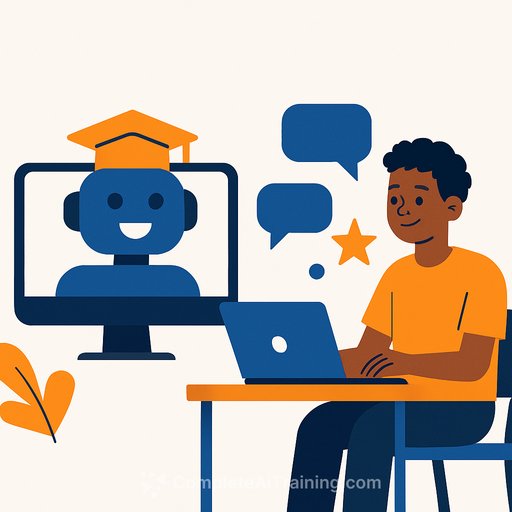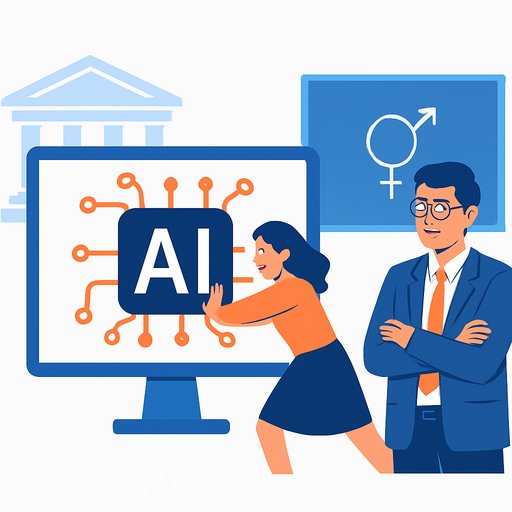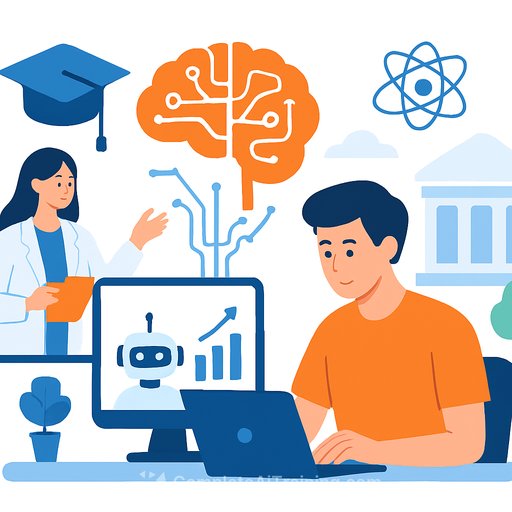The GIST AI Tool That Supports Learning Better Than ChatGPT
Artificial intelligence is now a permanent part of our lives, yet skepticism remains, especially in education. Many worry that AI tools like ChatGPT, which can provide answers and even complete assignments, might hamper genuine learning. Concerns focus on whether relying on such tools diminishes students' cognitive engagement and retention.
Research from the Massachusetts Institute of Technology (MIT) has added fuel to this debate. Their study found that when students use AI like ChatGPT to solve tasks, brain activity decreases. EEG scans showed fewer neural connections during AI-assisted writing compared to composing texts independently. Moreover, students who used ChatGPT struggled more with remembering their own writings. This suggests AI may lower actual learning by reducing cognitive effort.
However, this perspective has been challenged by researchers at the University of Copenhagen, who took a different approach.
ChatTutor: An AI Tool Built for Learning
Professor Guido Makransky and his team from the Department of Psychology partnered with ChatTutor to create an AI tool specifically intended to support student learning. Unlike generic AI tools, ChatTutor is designed to encourage reflection and deeper cognitive processing.
"We aimed to simulate the role of an effective teacher," explains Makransky. "Our chatbot prompts students to explain concepts based on their individual knowledge gaps. It scaffolds learning by asking adaptive, exploratory questions rather than just giving answers."
This approach is grounded in educational psychology: people learn best when actively engaged. Instead of handing over solutions, ChatTutor supports students in thinking through problems, helping them understand and apply concepts.
When students input answers, the AI analyzes their responses to identify correct and incorrect understanding. It then guides them with clarifying questions that promote reflection, much like a tutor would.
"This allows AI to provide personalized support at scale—something a single teacher can't manage with hundreds of students. Importantly, teachers remain in the loop, crafting the reflective questions and engaging with the student-AI interactions," Makransky adds.
Effective Results with University of Copenhagen Students
The team tested ChatTutor with 175 university students, comparing it to ChatGPT and traditional teaching without AI support. They measured learning outcomes, enjoyment, and trust in the tool.
The results were clear: students using ChatTutor learned more than those using ChatGPT or no AI at all. The tool also received higher ratings for enjoyment and willingness to use it again.
The experiment was repeated with 234 high school students, confirming these findings.
"These results highlight the importance of using AI to support learning actively, not just as a shortcut for answers," says Makransky.
- AI tools that encourage student reflection can enhance understanding and retention.
- Personalized prompts help identify and address knowledge gaps effectively.
- Teachers can integrate AI as a supportive tool while maintaining control over content and interaction.
For educators looking to incorporate AI thoughtfully in their teaching, tools like ChatTutor offer a promising direction. Instead of replacing teacher guidance, they amplify it by fostering deeper student engagement.
If you're interested in practical AI applications in education and want to learn more about integrating such tools, explore courses and training options at Complete AI Training.
Your membership also unlocks:






